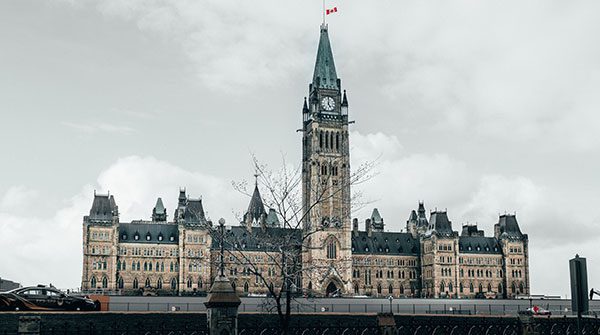Question Period, after all, is an essential tool for political accountability
 “It’s not called ‘answer period,’” say many political aides. Their advice to cabinet members is that s/he then doesn’t have to answer a question in Question Period. They add a smirk showing they’ve revealed something naughty and know it.
“It’s not called ‘answer period,’” say many political aides. Their advice to cabinet members is that s/he then doesn’t have to answer a question in Question Period. They add a smirk showing they’ve revealed something naughty and know it.
This comment is usually injected into my media training sessions where I’m trying to train the cabinet member to answer questions.
Why stonewall and look foolish or combative?
Many readers may side with the political aides because they regularly see a ridiculous show from Question Period on TV. The fact is that the venue for questions exists in our Westminster system of government, not the quality of questions on any given day.
Wouldn’t Americans benefit from seeing their President go to Congress to answer a few questions – even once a year? George Washington did, didn’t like it, never went back, and “executive privilege” was invented.
A newish book helps make my case. The Politics of Legislative Debates by Hanna Back, Mark Debus and Jorge Fernandes shows the importance of political speech in legislative chambers. Being an Oxford University Press publication, its 864 pages could prop open any ancient and heavy library or chamber door in the roughly three dozen jurisdictions studied. Also, being Oxford, it’s part of a series and features distinguished editors. (Full disclosure – my son is a double graduate of Oxford, and I’ve been a guest lecturer there).
I can’t summarize the comprehensive volume here but promote two thoughts sparked by the book. First, there is much to learn from the pattern of speaking in legislatures. This includes women vs men, new vs veteran members, back-benchers vs cabinet members, subjects chosen, party solidarity, and so on. Second, there are significant differences even among our fellow Commonwealth countries.
On to the chapter on Canada. Some good news is that gender and seniority have little effect on speaking time. The less good news is that speaking time is mostly controlled by unofficial speaking lists. Party leaders and cabinet members have significant roles. The authors also point out what we can learn from who gets to speak – regardless of what is said. Members, for example, are playing to their constituents for support and will dissent from party lines if it helps them win the next election.
There are few constitutional mandates on speaking in the chamber, but lots of precedents, Standing Orders, and such. Besides the main show – Question Period – the opposition is allocated 22 sitting days during which their leaders choose the subject of debate. Private members can also speak. Voters can learn a lot about what all members decide to speak about.
With Question Period, there’s no notice of the content, so cabinet members and the Prime Minister must be up on their files.
Parliament is a great venue to test political speech and should be respected.
Allan Bonner was the first North American to be awarded an MSc in Risk, Crisis, and Disaster Management. He trained in England and has worked in the field on five continents for 35 years. His latest book is Emergency! – a monograph with 13 other authors on the many crises that occurred during the pandemic.
For interview requests, click here.
The opinions expressed by our columnists and contributors are theirs alone and do not inherently or expressly reflect the views of our publication.
© Troy Media
Troy Media is an editorial content provider to media outlets and its own hosted community news outlets across Canada.


